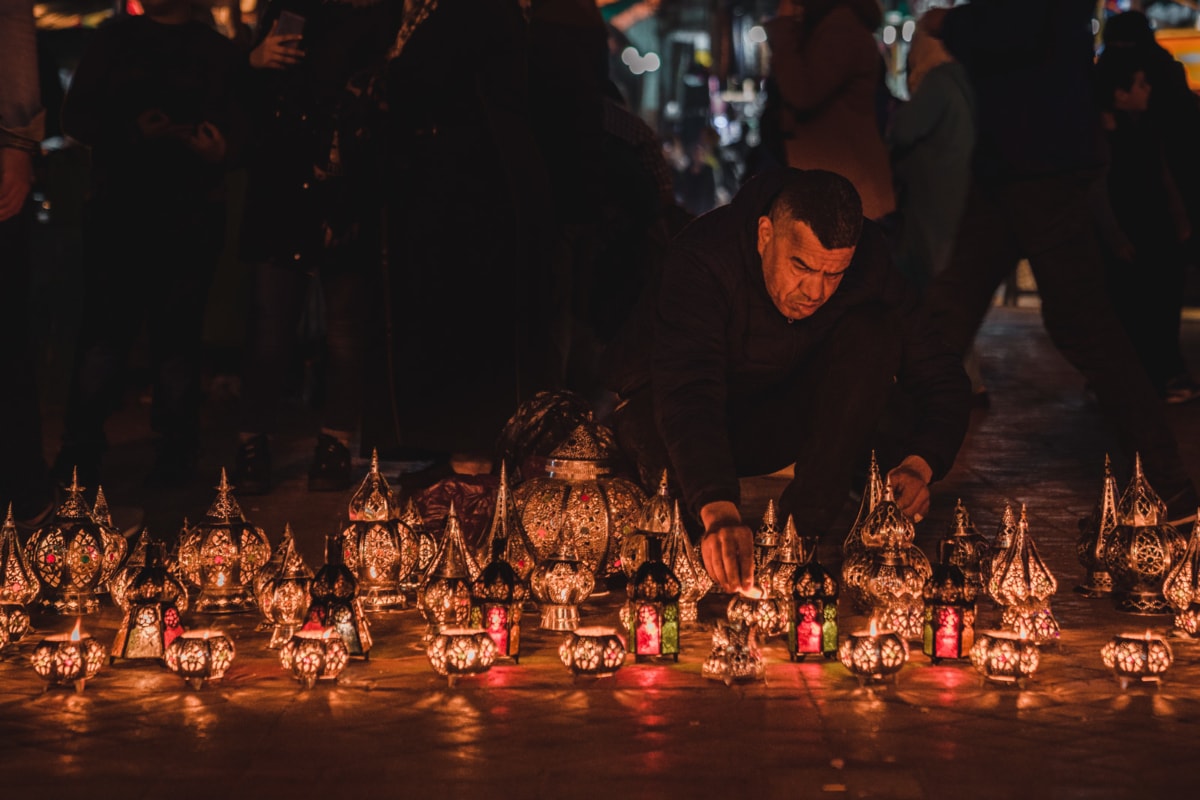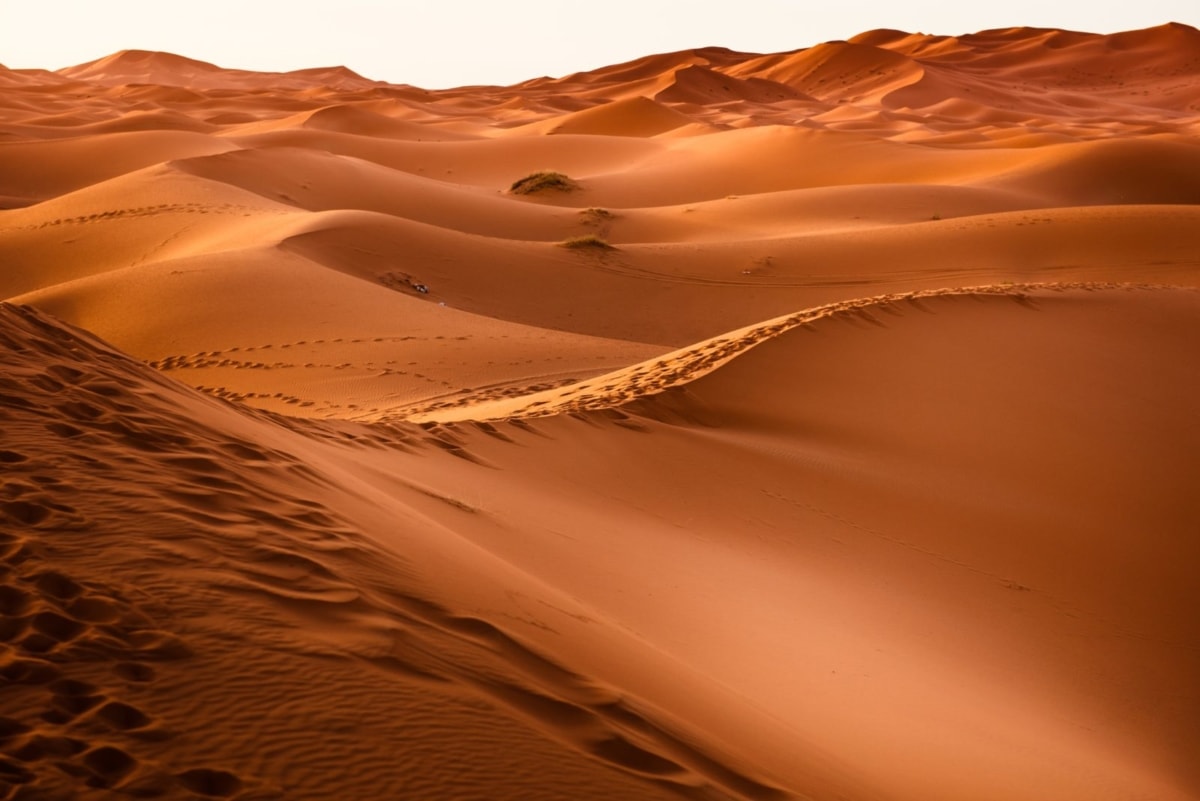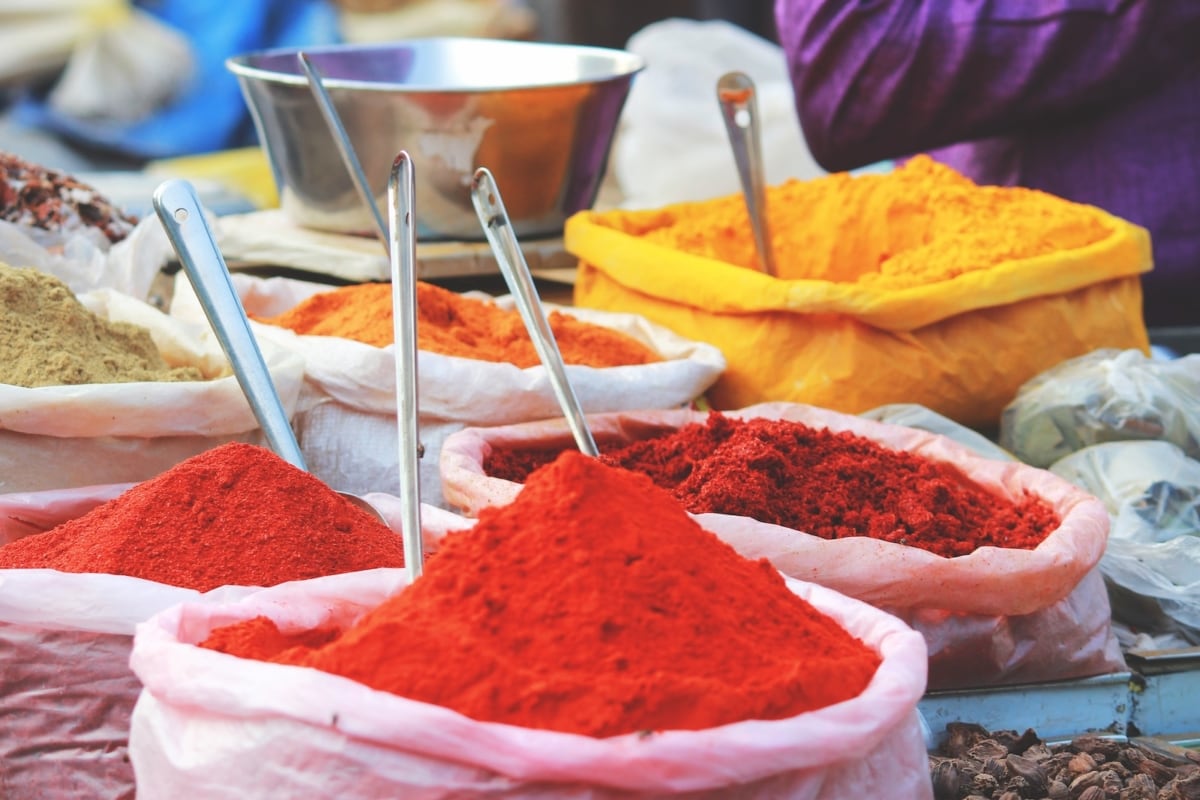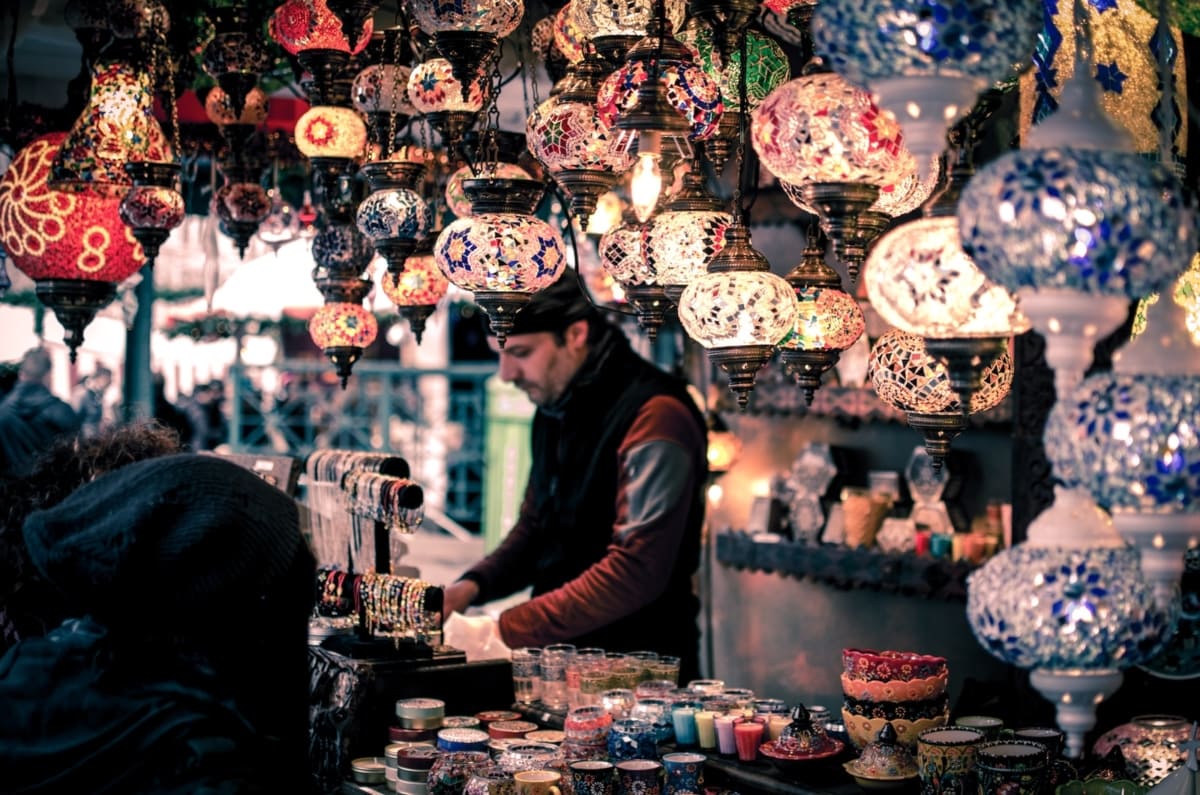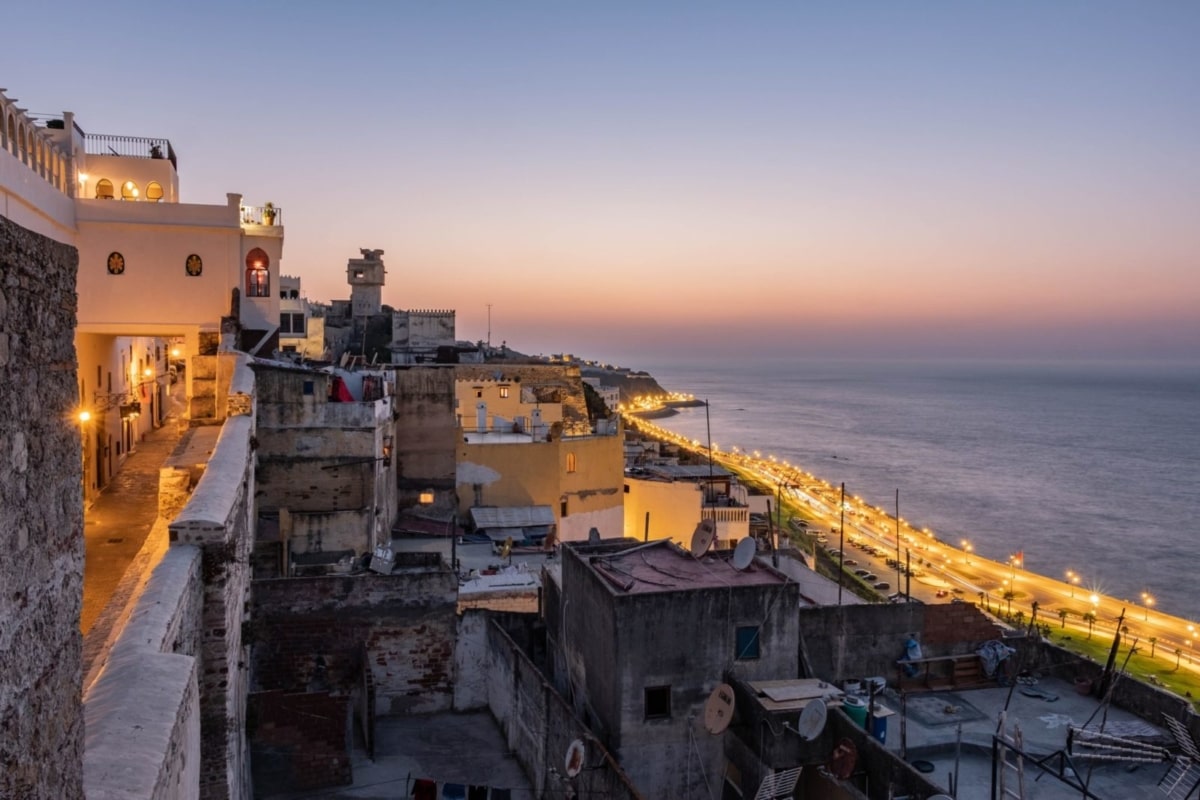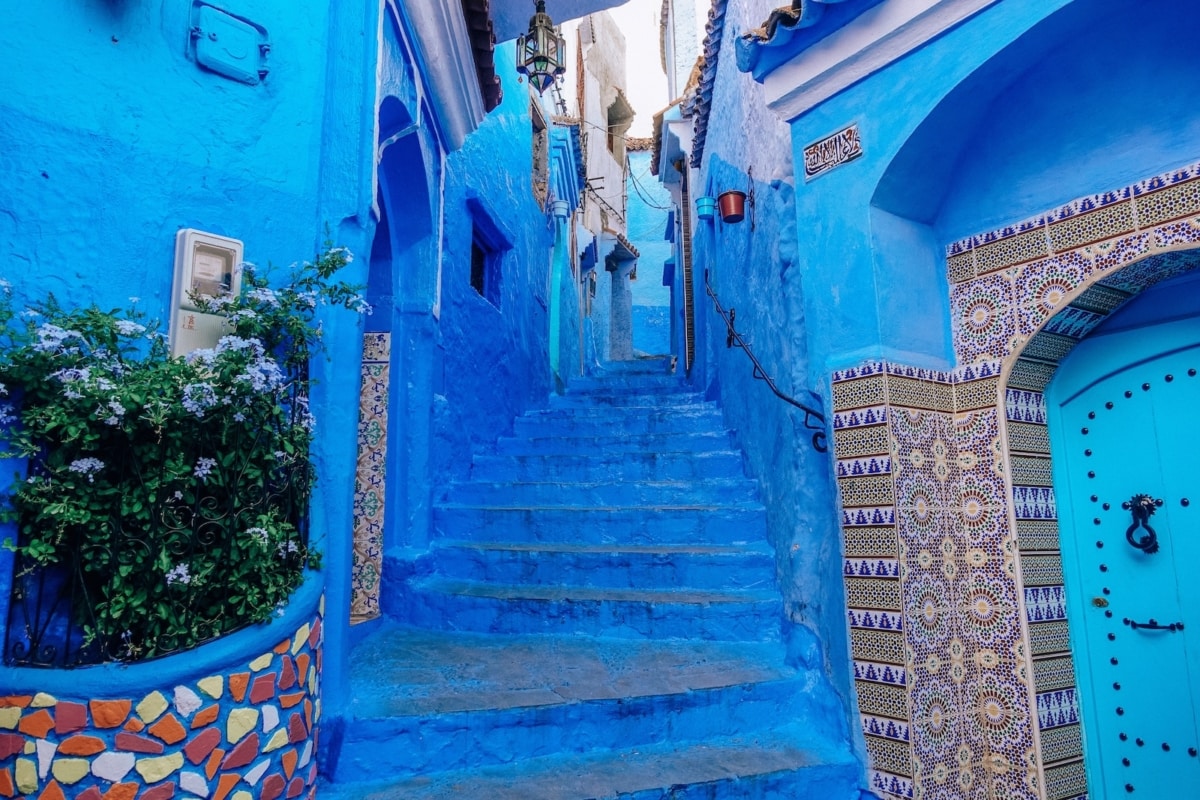Morocco is a small country, but it’s chock full of adventures from surfing to street foods. So travel insurance for Morocco is a must.
Should You Get Travel Insurance for Morocco?
Fragrant spices, colorful lanterns and leather goods fill the winding labyrinths of Morocco’s souks. You reach for your wallet to buy some mint tea, but you can’t find it. Someone snatched it. Luckily, you remembered to buy travel insurance for Morocco.
Travel insurance companies cover the costs of unexpected incidents like hospital visits, missed connections and, in this particular case, pickpockets—unfortunately not a rarity in Morocco.
The reality is, you never know what could happen while traveling. That’s why we’re big believers in taking travel insurance with you, wherever in this world it is you go.
If you can’t afford travel insurance, you can’t afford to travel.
What Is Travel Insurance?
Travel Insurance covers accidents, incidents and financial losses that could happen while you’re traveling.
There are numerous travel insurance companies on the market today. And while benefits will vary between each policy, they should contain the following categories:
- Trip cancellation and trip interruption
- Medical emergencies and evacuations
- Stolen, damaged or lost baggage and property
It’s important to note that travel insurance is different than your domestic health care plan. That’s because your health insurance probably won’t cover you when you’re in Morocco. In fact, it probably doesn’t cover you anywhere besides your home country. And it likely doesn’t include trip protection against missed flights or stolen belongings.
7 Reasons You Need Travel Insurance for Morocco
No matter where you travel, it’s crucial to protect yourself with travel insurance. This is especially true in Morocco, where accidents and medical emergencies can happen at any time.
In the following scenarios, for example, you’ll be thankful you have travel insurance in Morocco.
-
The Weather Can Cause Heatstroke

The sand dunes of the Sahara Summer in Morocco means extreme heat and high humidity. The temperature outside will likely lull around the low 80s at best—120 at its worst. If you’re not properly hydrated, you can get heatstroke, sending you straight to the hospital for emergency fluids.
-
Water Quality Is Questionable
Tap water in Morocco is not usually safe to drink, especially in small towns and villages. There’s a high chance that the water contains harmful bacteria and materials. Consequently, one sip (or brushing your teeth) could make you very sick.
-
Pickpockets Are Common in Morocco
Crowded areas, like Medinas and souks, can be teeming with thieves and pickpockets. And if you’re not paying attention, someone could easily steal your wallet or smartphone without you noticing.
-
Medical Care May Not Always Be Available
While hospitals are located in big cities, they are not common in rural areas of Morocco. If you get injured and need medical help in the desert or a small village, you’ll need to be transported (and possibly airlifted) to the nearest hospital.
-
Pedestrians Do Not Have the Right of Way
Crossing streets or walking through the Medina can be a dangerous task. Streets are filled with cars, scooters and even donkeys. And if the driver isn’t paying attention, you could get injured.
-
Some Food Might Make You Ill

Moroccan food is delicious, but it's not always safe to eat! Moroccan food, while delicious, can make you sick if it’s not cooked properly. You don’t know if your fruit was washed with tainted water or if your meat was handled by dirty utensils. As a result, you could get a stomach bug or even food poisoning.
-
Henna Tattoo Ink Could be Dangerous
While you’re in Morocco, you might consider getting a henna tattoo from a local artist. And while most ink is perfectly safe, some can contain traces of para-phenylenediamine or PPD. This could cause allergic reactions and skin irritations that require medical treatment from a hospital.
What Does Travel Insurance in Morocco Cover?
Although coverage will vary depending on your policy, the best travel insurance for Morocco should cover the following situations.
-
Trip Cancellation
Trip cancellation will cover the cost of any unused travel expenses if you are unable to go on your trip to Morocco. It’s important to note that your reason for canceling needs to be covered by the insurance company. Some common reasons include injury, natural disasters or the death of a family member.
The amount of coverage also differs between different travel insurance companies. However, you should purchase a policy that covers the entire cost of your trip.
-
Trip Interruption
If for some reason you need to leave Morocco during your trip, then you’ll be thankful to have trip interruption coverage. That’s because, if you need to return home due to a family emergency, travel insurance will reimburse the cost of your unused flights and hotel stays.
Like trip cancellation coverage, your trip interruption plan should also cover the entire cost of your trip to Morocco.
-
Medical Emergencies

Morocco is a sensory overload -- if a medical emergency happens, you want to be covered Unfortunately, accidents can happen when you’re traveling through Morocco. If you need to see a doctor or go to the hospital, a medical emergency plan will cover the cost of your medical bills.
Without travel insurance, you could be forced to pay thousands of dollars in hospital bills and medical treatments. For this reason, you should purchase a plan with at least $100,000 in emergency medical coverage.
-
Medical Evacuation and Repatriation
Not all cities in Morocco are equipped for emergency medical treatments. If you break your leg in the Sahara or get food poisoning in a small village, you’ll need to be transported to the medical facility.
Medical evacuation coverage will cover the costs of sending you to the nearest hospital for treatment. And if your injury becomes too severe, emergency repatriation will pay to send you back home for further care.
Being airlifted or transported can be extremely expensive. That’s why your travel insurance policy should include at least $100,000 in medical evacuation and repatriation.
-
Lost, Stolen or Damaged Property
Travel Insurance should also cover lost, stolen or damaged property. So if the airline loses your luggage or a pickpocket takes your camera, you can file a claim to be reimbursed for the cost of the items.
Keep in mind that most plans won’t cover items that were left unattended. And, they might not cover stolen cash, smartphones or passports.
The Best Travel Insurance for Morocco
-
World Nomads: The Best Overall Travel Insurance for Morocco
As one of the leading travel insurance companies for travelers, World Nomads offers comprehensive coverage for your trip to Morocco.
World Nomads offers two different travel insurance plans. The Standard plan comes with $100,000 emergency medical coverage, $300,000 medical evacuation and repatriation, and $1,000 in lost or stolen property.
But if you need more coverage for your trip, opt for the Explorer plan. It comes with $100,000 in emergency medical coverage, as well as a generous $500,000 in medical evacuation and $3,000 in lost or stolen property.
Both plans also come with protection for over 300 different sports and activities. So if you plan to rock climb in the Atlas Mountains or raft down the N’Fiss River, you’ll be covered in case anything should happen.
-
Allianz: The Best Morocco Travel Insurance for Seniors
Every traveler should have travel insurance in Morocco, no matter how old they are. However, there are very few travel insurance companies that cover senior travelers. But with Allianz Global Assistance, there’s no age limit for insurance policyholders.
Not only is Allianz the largest insurance provider in the world, but it’s also one of the best companies for comprehensive travel insurance.
Although there are multiple plans to choose from, senior travelers should purchase the OneTrip Premier plan. This plan comes with $50,000 in medical emergency, $1,000,000 in medical evacuation and $2,000 in lost or stolen property.
-
InsureMyEquipment: The Best Travel Insurance for Camera Equipment
Taking photos is one of the best ways to remember your once-in-a-lifetime experience in Morocco. And if you’re traveling with expensive gear, you should also consider purchasing travel insurance for your camera equipment.
That’s because other travel insurance policies only cover electronics up to a certain amount. Therefore, you might only get reimbursed for a fraction of what your camera or gear costs.
With InsureMyEquipment, your camera, lenses and other electronics will be covered against theft or damage. But keep in mind that this policy only protects equipment. InsureMyEquipment does not offer any medical or trip coverage.
How to File a Claim With Your Travel Insurance if Something Goes Wrong in Morocco
If something goes awry on your trip to Morocco, it’s important to know how to file a claim.
The exact process will vary depending on your travel insurance company. But generally speaking, the following guidelines will help you file a claim for reimbursement.
-
Take Precautions Before You Travel

Tangier by night. Even before you arrive in Morocco, there are steps you can take to protect your trip as well as yourself.
To start, you should print and store your travel insurance information. This can be a card or a printed document. Make sure the information includes your full name and policy number.
You should also fill out all the information inside your passport. Include your full name, address and phone number, as well as the details of an emergency contact.
It’s also a good idea to take a photocopy of your passport. That way, you can have all the necessary information without carrying your original passport with you during the day.
Finally, make a list of the in-network medical providers in Morocco. If you need to visit the hospital during your trip, you’ll already have the names of hospitals and facilities that accept your travel insurance.
-
Call the Insurance Provider’s Hotline
A good travel insurance company will offer a 24-hour contact number. If your situation is not urgent, you can call your insurance provider to inform them of the accident and to start the claim filing process. They can also advise on the next steps, like where to find the nearest police station or medical facility.
As always, go to the hospital or police station right away if you’re in an emergency. You can always inform your travel insurance provider after.
-
Document the Incident or Accident

The blue city of Chefchaouen, Morocco If you need to file a claim, gather the necessary documents, receipts or written notices. In order to get reimbursed, you will need to provide proof of the incident to your travel insurance provider.
Let’s say, for example, that someone steals your iPad while you were in a cafe. In this situation, you will need an incident report from the policy and, probably, the receipt that shows the cost of the iPad. And if you break your leg, you’ll need to have the written medical report as well as the itemized bill.
Remember, the more proof you provide your travel insurance company, the more likely it is that they’ll reimburse you.
-
File the Travel Insurance Claim
Many providers allow you to submit your documents and file the claim from their website. However, other companies may require that everything is sent by mail.
Take note of when you need to submit your claim to your insurance provider by. Different companies have different timelines. But generally speaking, you have between 10 and 60 days to file your claim.
-
Get Reimbursed
After you’ve submitted your claim, you will need to wait for a response from your Morocco travel insurance company.
If they require further information, they will get in touch by phone or mail. However, this could delay your approval, which means you should send as much information as you can in the beginning.
When the company approves your claim, it may take them anywhere from a few days to several weeks to reimburse you.
Final Thoughts
Many people travel to Morocco and return home safely. But, even if you never have to use it, travel insurance gives you the peace of mind to fully experience everything Morocco has to offer.
With travel insurance, your provider will protect you while road-tripping through the Sahara or surfing on the coast of Taghazout—and everything in between.
While it’s important for your trip to Morocco, travel insurance is essential anywhere you travel. So before you leave home, don’t forget to purchase the right travel insurance policy for you.
READ MORE:
Morocco Travel Insurance FAQs
-
Do you need travel insurance to go to Morocco?
Yes, you should get travel insurance for a trip to Morocco.
-
How much does travel insurance cost?
Travel insurance typically costs around 5% of the total price of your trip.
-
How safe is Morocco for tourists?
Morocco is one of the safest countries in Africa, but scams and petty theft are still common problems for tourists.
-
Is it safe to go to Morocco as an American?
Generally, Morocco is a safe destination for American travelers. However, this can depend on your race, gender, sexuality, and the city you visit.
-
Is Morocco safe for female tourists?
Morocco is generally safe for female tourists, but you should definitely be aware of potential safety threats and stay away from certain areas.
